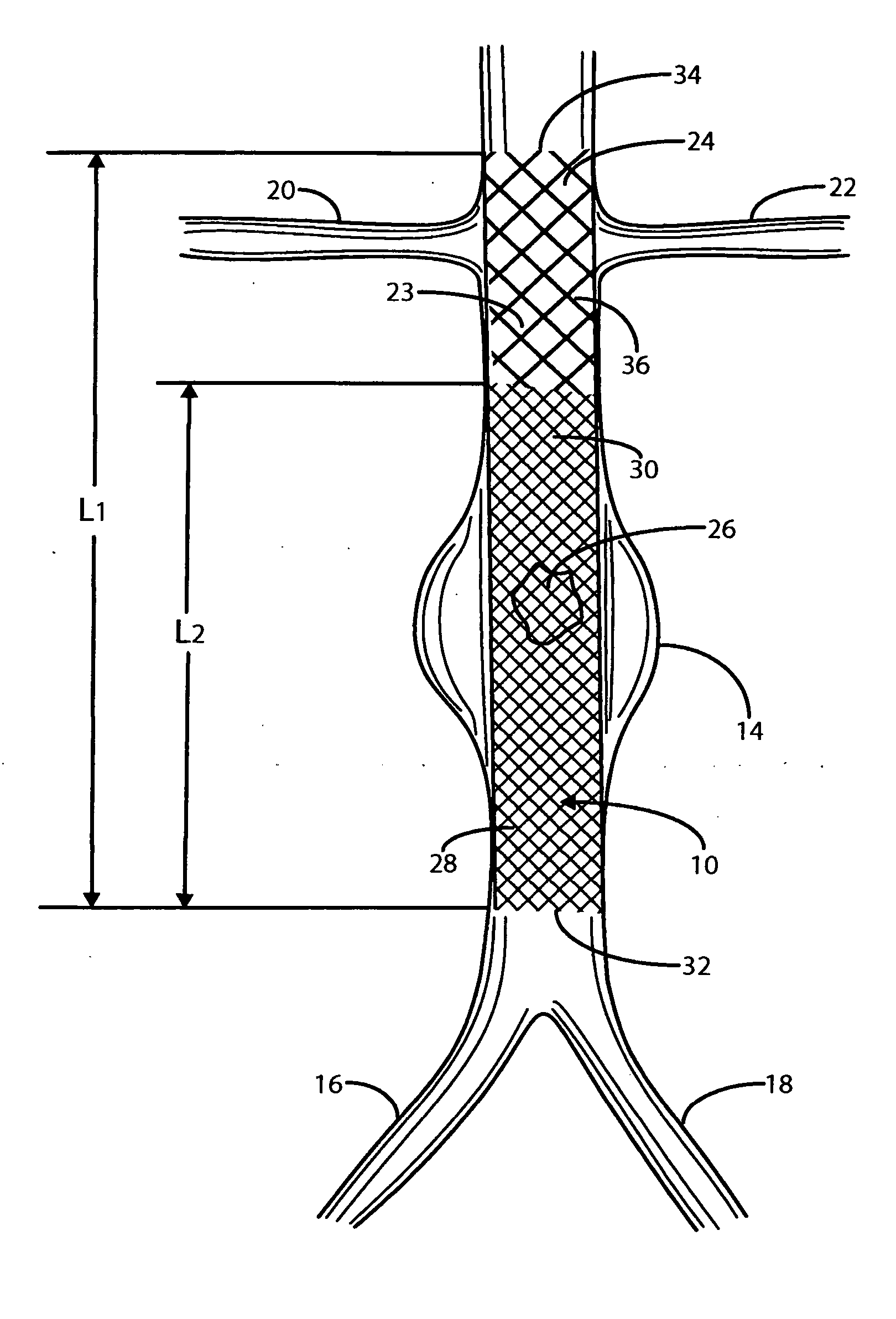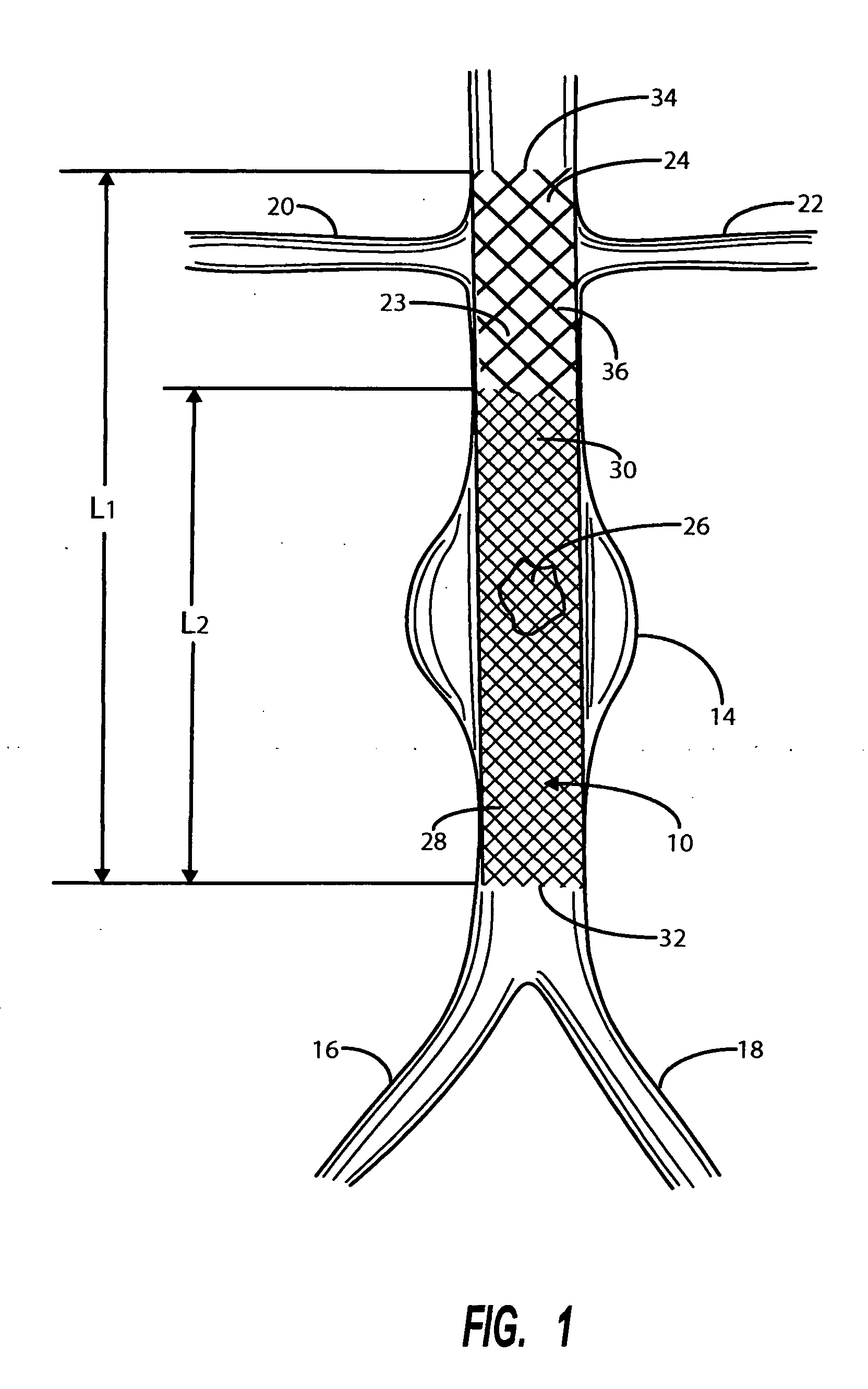Intravascular deliverable stent for reinforcement of abdominal aortic aneurysm
a delivery device and deliverable technology, applied in blood vessels, medical science, textiles and papermaking, etc., can solve the problems of not being well suited for intravascular treatment of aortic aneurysm, too late, low survival chances, etc., and achieve the effect of reducing the outer diameter of the devi
- Summary
- Abstract
- Description
- Claims
- Application Information
AI Technical Summary
Benefits of technology
Problems solved by technology
Method used
Image
Examples
Embodiment Construction
[0019] Referring to FIG. 1, there is indicated generally by numeral 10 the preferred embodiment of the stent / graft constructed in accordance with the present invention. The stent / graft 10 is shown in place in a segment of the abdominal aorta 12 having an aneurysm 14. At its lower end, the abdominal aorta 12 branches into the left and right common iliac arteries 16 and 18. Also shown in FIG. 1 are renal arteries 20 and 22 leading to the kidneys (not shown).
[0020] The stent / graft 10 comprises an innermost tubular structure 23 of a first length (L1). The innermost tubular structure comprises a first plurality of braided wire strands 24, preferably of a shape memory alloy. The braid comprising the innermost tubular structure 23 has a predetermined pick and pitch to define openings through the structure that are sufficiently large so as not to materially impede blood flow through its fenestrated wall. The wire strands may have a diameter in a range of from 0.002 to 0.010 inch and tubula...
PUM
 Login to View More
Login to View More Abstract
Description
Claims
Application Information
 Login to View More
Login to View More - R&D
- Intellectual Property
- Life Sciences
- Materials
- Tech Scout
- Unparalleled Data Quality
- Higher Quality Content
- 60% Fewer Hallucinations
Browse by: Latest US Patents, China's latest patents, Technical Efficacy Thesaurus, Application Domain, Technology Topic, Popular Technical Reports.
© 2025 PatSnap. All rights reserved.Legal|Privacy policy|Modern Slavery Act Transparency Statement|Sitemap|About US| Contact US: help@patsnap.com


